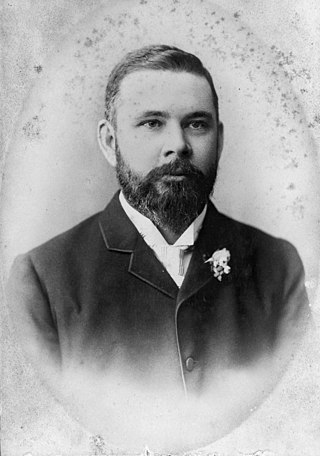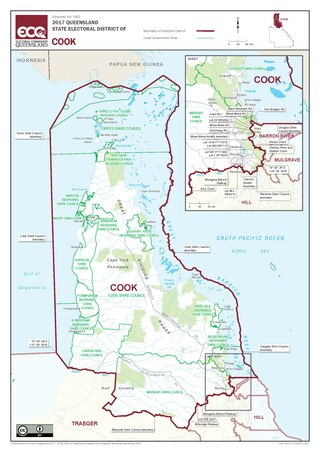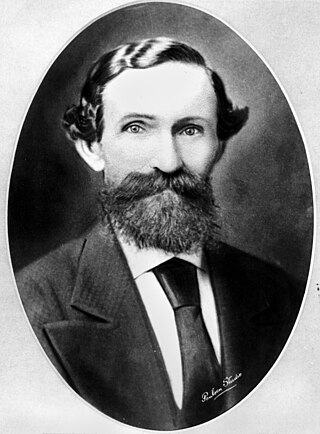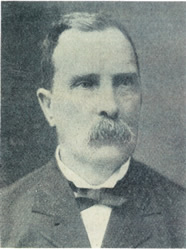
Sir Robert Philp, was a Queensland businessman and politician who was Premier of Queensland from December 1899 to September 1903 and again from November 1907 to February 1908.

Thomas Joseph Byrnes was an Australian politician and barrister. He was Premier of Queensland from April 1898 until his death in September of the same year, having previously served in several ministerial positions in his parliamentary career. He was the first Roman Catholic Premier of Queensland and the first to die in office.

Boyd Dunlop Morehead was a politician in Queensland, Australia. He was Premier of Queensland from November 1888 to June 1890.

George Henry Thorn (junior) was a Member of the Queensland Legislative Assembly and a Premier of Queensland, Australia.

John Douglas was an Anglo-Australian politician and Premier of Queensland.

Sir Horace Tozer was an Australian lawyer and politician. He was a Member of the Queensland Legislative Assembly.

Cook is an electoral district in Queensland, Australia.

The Shire of Cloncurry is a local government area in North West Queensland, Australia. It covers an area of 47,971 square kilometres (18,521.7 sq mi), and has existed as a local government entity since 1884. The major town and administrative centre of the shire is Cloncurry.

John Murtagh Macrossan was an Australian politician of the late 19th century in the parliament of Queensland.
This is a list of members of the 11th Legislative Assembly of Queensland from 1893 to 1896, as elected at the 1893 colonial election held between 18 April 1893 and 25 May 1893.
This is a list of members of the 10th Legislative Assembly of Queensland from 1888 to 1893, as elected at the 1888 colonial election held between 28 April 1888 and 26 May 1888.
This is a list of members of the 9th Legislative Assembly of Queensland from 1883 to 1888, as elected at the 1883 colonial elections held between 10 August 1883 and 30 October 1883.

Richard Bingham Sheridan was a Queensland public servant, liberal-oriented Member of the Legislative Assembly of Queensland and government minister.

Hon. Patrick Perkins, J. P.,, nicknamed Paddy Perkins, was a brewer and politician in colonial Queensland. He was a Member of the Queensland Legislative Assembly and, later, a Member of the Queensland Legislative Council.
Elections were held in the Australian state of Queensland between 10 August 1883 and 30 October 1883 to elect the members of the state's Legislative Assembly.

Charles Lumley Hill was a pastoralist, businessman and politician in Queensland, Australia. He was a Member of the Queensland Legislative Assembly.

Ernest Charles James Hunter was a sharebroker and member of the Queensland Legislative Assembly.

James Brennan was a member of the Queensland Legislative Assembly.

Thomas Foley was a member of the Queensland Legislative Assembly.

Patrick Francis Hanran was a member of the Queensland Legislative Assembly.


















